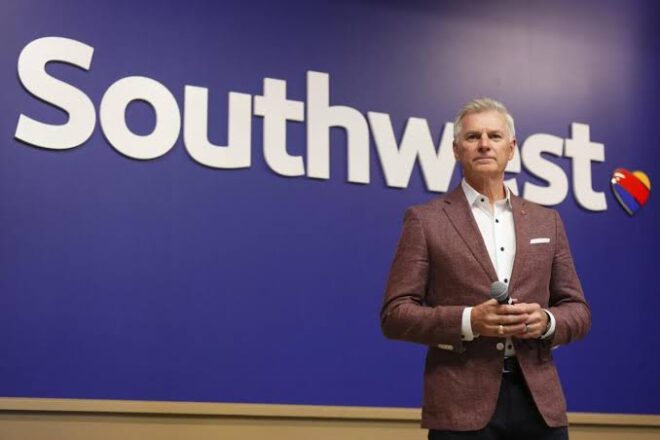
In a surprising turn of events, Southwest Airlines’ CEO, Bob Jordan, has announced his resignation amid ongoing organizational restructuring and pressure from activist investors. This decision comes shortly after the airline revealed plans to reduce its corporate workforce by 1,750 positions, approximately 15% of its corporate staff, aiming to streamline operations and reduce costs.
The resignation follows months of scrutiny from Elliott Investment Management, a significant stakeholder in Southwest Airlines. Elliott has been vocal about the airline’s need for strategic changes, criticizing its outdated policies and underwhelming financial performance. In response to this pressure, Southwest has already begun implementing several initiatives, including phasing out its open-seating policy in favor of assigned seating, introducing premium seating options, and adding red-eye flights to its schedule.
Despite these efforts, Elliott continued to push for leadership changes, leading to the recent overhaul of Southwest’s board. Longtime Chairman Gary Kelly announced his retirement, and six board members are set to resign after the November board meeting. These departures are part of a settlement with Elliott, which has been advocating for a transformation in the airline’s governance and strategic direction.
Bob Jordan’s resignation marks a significant shift in Southwest Airlines’ leadership during a critical period of transformation. The company is now tasked with navigating these changes while maintaining its commitment to customer service and operational efficiency.